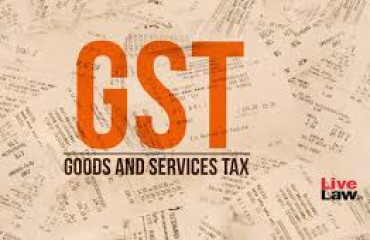
GST rule change: From 1 August 2023, it will be mandatory for all the businesses with turnover of ₹5 crore or above to produce e-invoice
GST rule change: From 1 August 2023, it will be mandatory for all the businesses with turnover of ₹5 crore or above to produce e-invoice
 Premium
PremiumAs per the GST guidelines, it will be mandatory for companies with a B2B transaction value of ₹5 crore, to produce an electronic invoice. Earlier, companies with an annual revenue of ₹10 crore or above were required to generate e-invoice.
Also read: GST Council should discuss burden on small businesses, tax frauds: Amit Mitra
On July 28, the Central Board of Indirect Taxes and Customs tweeted about the change in rule. In its tweet, the CBIC informed that GST Taxpayers whose aggregate turnover is more than ₹5 crore in any financial year, have to mandatorily produce e-invoice for B2B supply of goods or Services or both, or for exports from 1 August 2023.
The notification was released for the lower threshold businesses by the CBIC in May. The move will help in boosting collections and compliance under the GST.
Also Read: Rent on hostel, paying accommodations to attract 12% GST; here's why
GST e-invoice rule: A boon for MSME sector
Experts believe that change in e-invoice rule and inclusion of companies with lesser turnover can help boosting the MSME entities.
Deloitte India Partner Leader Indirect Tax Mahesh Jaising said with this announcement, scope of MSMEs under e-invoicing will be expanded and they will need to implement e-invoicing, reported PTI.
"For companies e-invoicing is a boon rather than a bane as suppliers who are e-invoicing compliant result in proper flow of input tax credit and reduce the churn around credit issues," Jaising added.
Also read: Major GST fraud unearthed: 3 arrested in Meerut for claiming fake tax credit of ₹557 cr
Another expert, AMRG & Associates Senior Partner Rajat Mohan said that phased implementation of e-invoicing has helped in reducing disruptions, improving compliances and increase in revenue.
"Inclusion of MSME sector in the e-invoicing regime would benefit the overall business ecosystem by reducing costs, rationalising errors, ensuring faster invoice processing, and also limiting commercial disputes in the long term," Mohan added.
Reducing the threshold limit for issue of e-invoice for B2B transactions from ₹10 crore to ₹5 crore will helpt the GST department in raising revenue and tackling tax invasion. Other than this, the government has also started using robust data analytics and artificial intelligence to identify and track risky taxpayers. To formulate a much targeted intervention, it has also begun sharing of data with partner law enforcement agencies.
